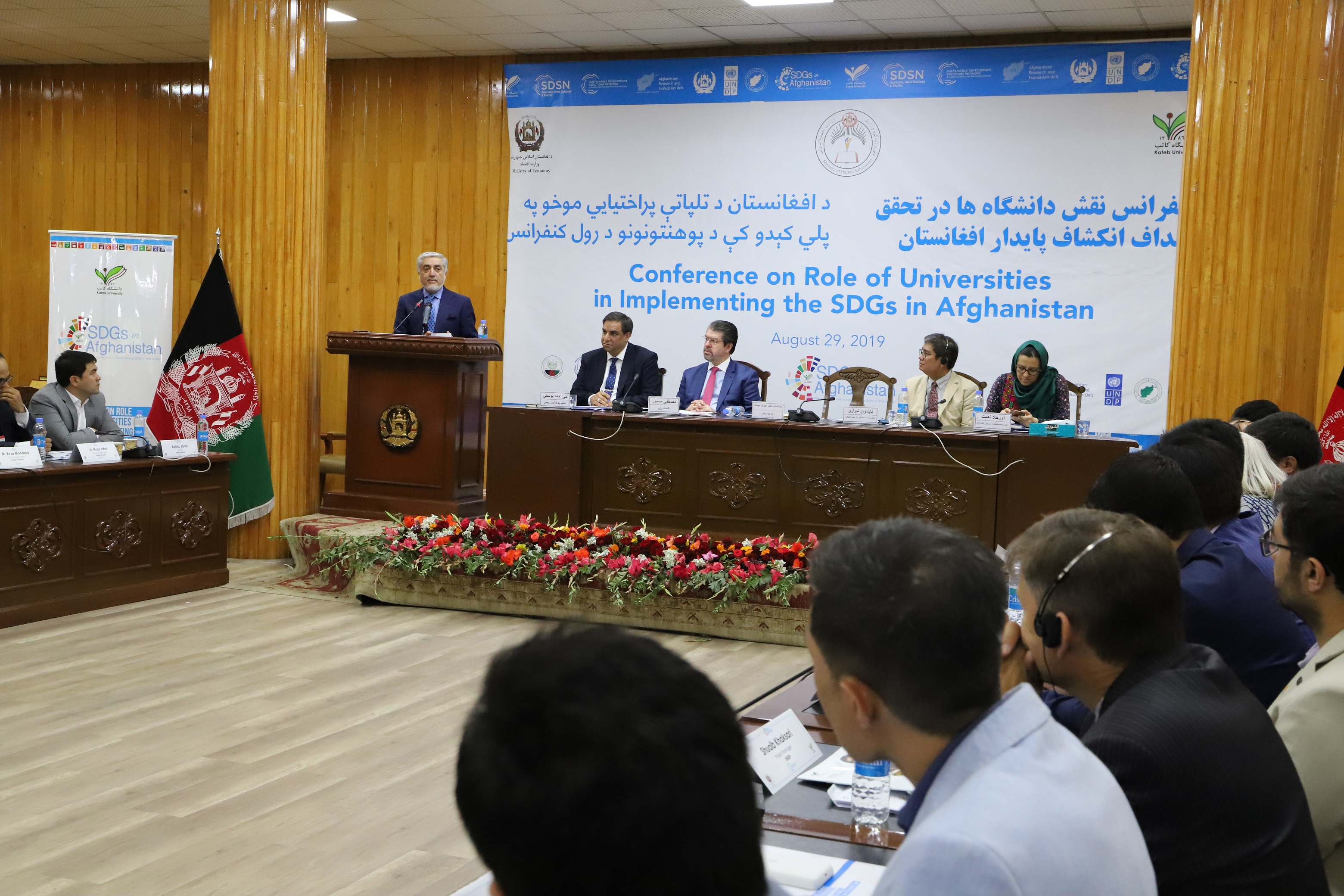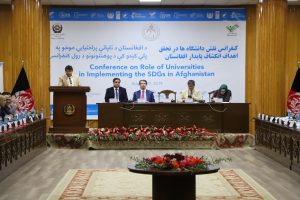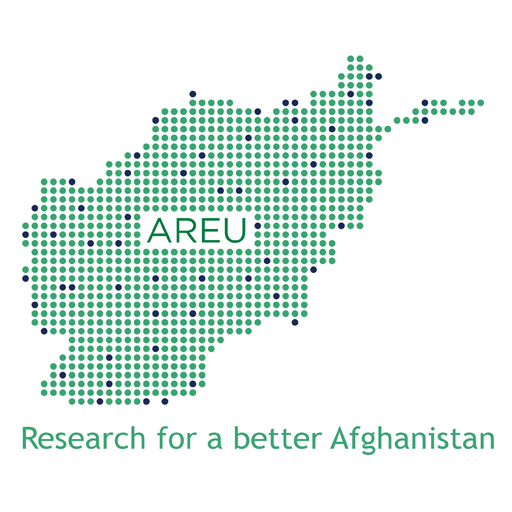
20 Oct The Role of Universities in Implementing the SDGs in Afghanistan
 On August 29, 2019, AREU in partnership with Kateb University, the Sustainable Development Solutions Network (SDSN) and Ministry of Economy of Afghanistan (MoEC), and UNDP organized a one-day conference titled ‘The Role of Universities in Implementing the SDGs in Afghanistan’. The event was held at the Government Media and Information Center with over 250 participants from different universities, CSOs, development organizations, and the government. The conference was a gateway for further cooperation among universities in Afghanistan to play their roles in the fields of Teaching and Learning, Research, External Leadership and Operation and Governance.
On August 29, 2019, AREU in partnership with Kateb University, the Sustainable Development Solutions Network (SDSN) and Ministry of Economy of Afghanistan (MoEC), and UNDP organized a one-day conference titled ‘The Role of Universities in Implementing the SDGs in Afghanistan’. The event was held at the Government Media and Information Center with over 250 participants from different universities, CSOs, development organizations, and the government. The conference was a gateway for further cooperation among universities in Afghanistan to play their roles in the fields of Teaching and Learning, Research, External Leadership and Operation and Governance.
The conference aimed to achieve the following objectives:
- To provide an overall update on the current status and progress of SDGs in Afghanistan
- To discuss possible actions by Afghan universities to help achieve the SDGs by 2030
- To explore opportunities of synergies and collaboration
- To highlight lessons learned from universities around the globe and discuss their feasibility to the Afghan context
The conference was introduced by Mr. Ali Ahmad Yousefi, Chancellor of Kateb University, who welcomed the participants and discussed the contributions of universities, as academic partners in achieving the SDGs in Afghanistan. The keynote speaker of the event was Professor Jeffrey Sachs, Director of SDSN. The guest speakers of the event were the CEO of Islamic Republic of Afghanistan H.E. Dr. Abdullah Abdullah, H.E. Dr. Mustafa Mastoor Minister of Economy, Dr. Orzala Nemat Director of Afghanistan Research and Evaluation Unit and Napoleon Navarro Senior Deputy Resident Representative at UNDP Afghanistan.
Dr Orzala Nemat indicated that AREU strengthens research and research capacities and provides the basis for analysis, discussion and discourse. Dr Nemat welcomed the recent signing of an MoU between AREU and Kateb University, in line with a stronger cooperation between universities and research institutions.
“AREU is willing to have cooperation with any private and governmental sectors in achieving Sustainable Developmental Goals in Afghanistan to influence the policies and functioning of institutions.†– Dr Orzala Nemat, Director, AREU.
Mr Qayoom Suroush, Project Manager at AREU, presented AREU findings on “Illicit Economies and SDG16 in Afghanistan†the challenges of doing research on SDGs in Afghanistan, lessons learnt and recommendationsâ€. He indicated that there are four main challenges of conducting research on SDGs in Afghanistan. These are lack of reliable data, lack of public awareness on SDGs, no integration with national programs and no proper reporting mechanisms. AREU research aims to highlight existing gaps in SDGs not explicitly dealing with illicit economies using the case of Afghanistan as an example where fragility and insecurity are among the main reasons for under development. One of the researches that AREU is currently doing is the SDG 16 which is about promoting peace. AREU is doing research on how the SDGs 16 has failed to explicitly address the illicit economy of Afghanistan. The SDGs 16 indicators are Illicit Financial Flows and Small Arms Control. AREU argues that tracing the illicit financial flows’ value is challenging, if not impossible in Afghanistan, due to factors such as Hawala System. In addition, seizing and controlling small arms and light weapons in the middle of ongoing conflicts is only wishful thinking, and with tens of illegal cross border transit as well as corruption in the system, it will be difficult to control the number of small arms getting into the country. Thus, relaying on numbers and statistics for measuring achievement, which is a general trend for SDGs, could be misleading.

